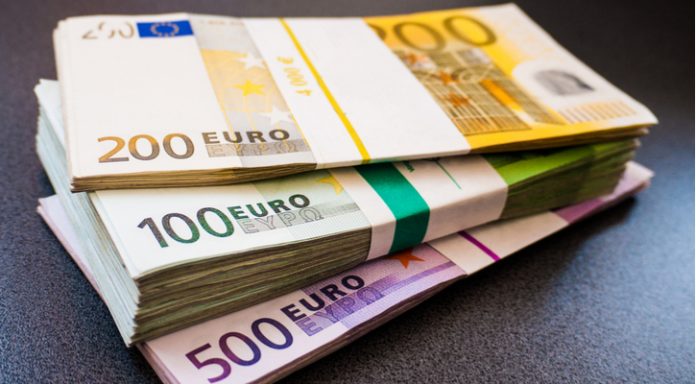The pound closed 0.6% higher versus the euro on Friday, however the pound was 0.5% lower against the euro across the week, after Brexit fears kept weighed on demand for sterling. As the new week started the pound was once again moving higher versus the euro, above €1.12, as concerns over financial risk from Turkey pulled the euro lower.
| What do these figures mean? |
|---|
|
When measuring the value of a pair of currencies, one set equals 1 unit and the other shows the current equivalent. As the market moves, the amount will vary from minute to minute. For example, it could be written: 1 GBP = 1.13990 EUR Here, £1 is equivalent to approximately €1.14. This specifically measures the pound’s worth against the euro. If the euro amount increases in this pairing, it’s positive for the pound. Or, if you were looking at it the other way around: 1 EUR = 0.87271 GBP In this example, €1 is equivalent to approximately £0.87. This measures the euro’s worth versus the British pound. If the sterling number gets larger, it’s good news for the euro. |
Whilst the pound traded higher versus the euro at the end of last week and the beginning of this week, this is more to do with euro weakness than any pound strength. The pound was out of favour in the previous week as concerns of a no deal Brexit increased. Investors started to panic that the UK will crash out of the European Union without a deal, which would lead to a hard Brexit. Many economists and business leaders have frequently stated that a hard Brexit would be very damaging for businesses and therefore the UK economy. As concerns of a no deal Brexit increased, the value of the pound decreased.
| Why is a “soft” Brexit better for sterling than a “hard” Brexit? |
|---|
| A soft Brexit implies anything less than UK’s complete withdrawal from the EU. For example, it could mean the UK retains some form of membership to the European Union single market in exchange for some free movement of people, i.e. immigration. This is considered more positive than a “hard” Brexit, which is a full severance from the EU. The reason “soft” is considered more pound-friendly is because the economic impact would be lower. If there is less negative impact on the economy, foreign investors will continue to invest in the UK. As investment requires local currency, this increased demand for the pound then boosts its value. |
The pound managed to move higher versus the euro on Friday after encouraging Gross Domestic Product (GDP) data. The UK economy grew at 0.4% quarter on quarter in the second quarter of this year, up from 0.2%in the first quarter of the year. The data shows that the British economy is gaining momentum after a particularly sluggish start to the year. The strong data boosted the pound.
| Why does strong economic data boost a country’s currency? |
|---|
| Solid economic indicators point to a strong economy. Strong economies have strong currencies because institutions look to invest in countries where growth prospects are high. These institutions require local currency to invest in the country, thus increasing demand and pushing up the money’s worth. So, when a country or region has good economic news, the value of the currency tends to rise. |
Today there is no UK economic data.
Euro dragged lower by Turkish Crisis
The euro dropped lower on the open in response to the sharp tumble in the Turkish Lira at the end of last week. The Turkish Lira has plummeted 44% so far this year as external and internal factors hit the economy and investors’ confidence. The selloff in the Lira accelerated on Friday as President Trump authorised the doubling of US tariffs on Turkish Steel and aluminium.
The concern for euro traders and the ECB is the extent to which European banks are financial exposed to Turkey and the Lira, and whether contagion could spread to European lenders such as UniCredit, BBVA, BNP Paribas. These fears have hit demand for the euro hard.
Today here is no Eurozone economic data so, developments in Turkey will remain in the spotlight.
This publication is provided for general information purposes only and is not intended to cover every aspect of the topics with which it deals. It is not intended to amount to advice on which you should rely. You must obtain professional or specialist advice before taking, or refraining from, any action on the basis of the content in this publication. The information in this publication does not constitute legal, tax or other professional advice from TransferWise Inc., Currency Live or its affiliates. Prior results do not guarantee a similar outcome. We make no representations, warranties or guarantees, whether express or implied, that the content in the publication is accurate, complete or up to date. Consult our risk warning page for more details.
This article was initially published on TransferWise.com from the same author. The content at Currency Live is the sole opinion of the authors and in no way reflects the views of TransferWise Inc.





